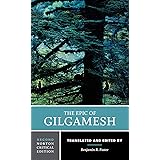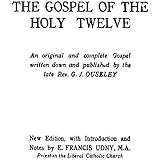
Enjoy fast, free delivery, exclusive deals, and award-winning movies & TV shows with Prime
Try Prime
and start saving today with fast, free delivery
Amazon Prime includes:
Fast, FREE Delivery is available to Prime members. To join, select "Try Amazon Prime and start saving today with Fast, FREE Delivery" below the Add to Cart button.
Amazon Prime members enjoy:- Cardmembers earn 5% Back at Amazon.com with a Prime Credit Card.
- Unlimited Free Two-Day Delivery
- Streaming of thousands of movies and TV shows with limited ads on Prime Video.
- A Kindle book to borrow for free each month - with no due dates
- Listen to over 2 million songs and hundreds of playlists
- Unlimited photo storage with anywhere access
Important: Your credit card will NOT be charged when you start your free trial or if you cancel during the trial period. If you're happy with Amazon Prime, do nothing. At the end of the free trial, your membership will automatically upgrade to a monthly membership.
Buy new:
-25% $10.49$10.49
Ships from: Amazon.com Sold by: Amazon.com
Save with Used - Acceptable
$7.02$7.02
Ships from: Amazon Sold by: Reliant Distribution

Download the free Kindle app and start reading Kindle books instantly on your smartphone, tablet, or computer - no Kindle device required.
Read instantly on your browser with Kindle for Web.
Using your mobile phone camera - scan the code below and download the Kindle app.

OK
The Epic of Gilgamesh Paperback – December 30, 1960
Purchase options and add-ons
A Penguin Classic
Gilgamesh, King of Uruk, and his companion Enkidu are the only heroes to have survived from the ancient literature of Babylon, immortalized in this epic poem that dates back to the third millennium BC. Together they journey to the Spring of Youth, defeat the Bull of Heaven and slay the monster Humbaba. When Enkidu dies, Gilgamesh’s grief and fear of death are such that they lead him to undertake a quest for eternal life. A timeless tale of morality, tragedy and pure adventure, The Epic of Gilgamesh is a landmark literary exploration of man’s search for immortality.
N. K. Sandars’s lucid, accessible translation is prefaced by a detailed introduction that examines the narrative and historical context of the work. In addition, there is a glossary of names and a map of the Ancient Orient.
For more than seventy years, Penguin has been the leading publisher of classic literature in the English-speaking world. With more than 1,700 titles, Penguin Classics represents a global bookshelf of the best works throughout history and across genres and disciplines. Readers trust the series to provide authoritative texts enhanced by introductions and notes by distinguished scholars and contemporary authors, as well as up-to-date translations by award-winning translators.
- Print length128 pages
- LanguageEnglish
- PublisherPenguin Classics
- Publication dateDecember 30, 1960
- Reading age18 years and up
- Dimensions7.7 x 5 x 0.3 inches
- ISBN-10014044100X
- ISBN-13978-0140441000
Books with Buzz
Discover the latest buzz-worthy books, from mysteries and romance to humor and nonfiction. Explore more
Frequently bought together

Similar items that may ship from close to you
Editorial Reviews
Amazon.com Review
Review
--Times Literary Supplement
About the Author
Product details
- Publisher : Penguin Classics; Revised edition (December 30, 1960)
- Language : English
- Paperback : 128 pages
- ISBN-10 : 014044100X
- ISBN-13 : 978-0140441000
- Reading age : 18 years and up
- Item Weight : 2.31 pounds
- Dimensions : 7.7 x 5 x 0.3 inches
- Best Sellers Rank: #8,603 in Books (See Top 100 in Books)
- #9 in Ancient & Classical Poetry
- #10 in Epic Poetry (Books)
- #306 in Classic Literature & Fiction
- Customer Reviews:
About the authors

Discover more of the author’s books, see similar authors, read author blogs and more

Discover more of the author’s books, see similar authors, read author blogs and more
Customer reviews
Customer Reviews, including Product Star Ratings help customers to learn more about the product and decide whether it is the right product for them.
To calculate the overall star rating and percentage breakdown by star, we don’t use a simple average. Instead, our system considers things like how recent a review is and if the reviewer bought the item on Amazon. It also analyzed reviews to verify trustworthiness.
Learn more how customers reviews work on Amazon-
Top reviews
Top reviews from the United States
There was a problem filtering reviews right now. Please try again later.
Enkidu fights Gilgamesh, showing him his strength and courage, which makes him the inseparable friend. After that, Gilgamesh feels the urgency to leave his legacy in this world before his inevitable death, another humanizing feature, since the individual already shows a full conscience of his mortality and of himself, and thinks of the future. So, both friends depart for the Woods, presumably current Lebanon (the Cedar Forest), where Ancient Mesopotamians got their timber, so scarce in their country. To conquer the Woods, they must kill the giant Humbaba, guardian of the forest, incarnation of Evil and presumably the first reference to the Devil in literature. In doing so they infuriate all the gods except one, and one of them must die. This is how Enkidu gets sick and dies after an excruciating agony. This fact turns out to be devastating for Gilgamesh, because it confirms the inevitability of his own demise. Ravaged by his friend's death, Gilgamesh sets out on a journey to try and find a way to escape from mortality. He travels to the East, beyond the mountains, to the Country of Sun, to try to cross the Sea and reach the land of Dilmun (kind of a preserved Garden of Eden), where Utnapishtim lives, the only human to have survived the Flood (it raises your hair to see a reference to this cataclism, centuries before the Bible), and consequently granted immortality by the gods. Gilgamesh reaches the "garden by the sea" where a young female vineyard tender lives. She tells him frankly that he will never find what he's looking for, since Death is unavoidable. It is humans' Fate, but to humans it has also been granted the possibility of happiness, and so the girl advises him to "fill your belly with good things... have fun and rejoice. Wear clean clothes, bathe in fresh water, caress yout little cildren and embrace and make your woman happy", for that is also the Fate of Man. Gilgamesh can't give up and convinces the oarsman to take him to Dilmun. Utnapishtim, puzzled, receives him and tells him he'll live forever if he stays awake six days and seven nights. Of course he can't make it, and when he wakes up Utnapishtim tells him the story of the Flood, suprisingly and suspiciously similar to that told later in the hebrew Genesis (let's not forget the long years of Hebrew exile in Babilonia). Gilgamesh makes a final effort, ripping from the bottom of the sea the "plant that gives you your youth back" but later, while bathing in a well, a snake steals the plant, changes skin and leaves. Unconsoled, Gilgamesh returns to Uruk and dies.
It is difficult to exaggerate the historical and literary importance of this work, since in its brief span it collects all that makes us human: civilization, glory, the conscience of Death. It also gathers primeval memories, the process of going out of the African plains and building cities, the search for supplies and the fear of the beasts of the forests. The tale of the Flood confirms for us the memory of cosmic catastrophes which since the remote past left an indelible mark upon us. Indispensable reading.
PROs:
* Very good story
* Interesting characters
* A classic that stands up to the test of time
* Exciting page turner
CONs:
* A good bit of it is sadly missing (tablets haven't been found)
"`O Shamash, hear me, hear me, Shamash, let my voice be heard. Here in the city man dies oppressed at heart, man perishes with despair in his heart. I have looked over the wall and I see the bodies floating on the river, and that will be my lot also. Indeed I know it is so, for whoever is tallest among men cannot reach the heavens, and the greatest cannot encompass the earth."
The Epic of Gilgamesh is the oldest work of literature ever discovered, written by a(n?) unknown and forgotten genius(es?). It is simply remarkable how modern the book seems. It is your classic adventure story, with many books throughout history sampling similar themes, such as the meaning of life, loss, and coping with mortality.
The Epic follows King Gilgamesh of Uruk, a near perfect man, who is actually 2\3 god. He is so good at everything that it actually makes the population uneasy, and they cry out to the gods for them to humble him. The gods respond by making him a competitor out of clay (sound familiar?), Enkidu. Enkidu and Gilgamesh begin as rivals, but end as best friends. Unfortunately, Enkidu is stricken down by a jealous god (sound familiar?), and Gilgamesh must learn to cope with the reality of death. It is important to note that there is no fantasy of an afterlife provided here. Gilgamesh does not find comfort in illusions; he understands that he will never see Enkidu again. It turns out that Gilgamesh isn't able to cope with his own mortality, and instead begins on a quest for eternal life.
On this quest, we learn of the nature of the gods, the creation of the universe, and a global flood that wiped out nearly all life (still sound familiar?). As you can see, many later religious traditions copied copiously from this original title, which actually makes it an even more interesting read. Unfortunately the story is not complete; many of the ancient cuneiform tablets from Sumeria have never been found, and they probably never will be. The book is complete enough to have a very interesting and coherent story, nonetheless.
As a side, if you want a cool pop culture reference to the Epic, check out Star Trek: The Next Generation season 5 episode 2, Darmok. Captain Picard and crew meet an alien race that communicates solely based on cultural traditions, and Picard decides to tell a tale from our own human culture. Guess which story he chooses...
"She answered, `Gilgamesh, where are you hurrying to? You will never find that life for which you are looking. When the gods created man they allotted to him death, but life they retained in their own keeping. As for you, Gilgamesh, fill your belly with good things; day and night, night and day, dance and be merry, feast and rejoice. Let your clothes be fresh, bathe yourself in water, cherish the little child that holds your hand, and make your wife happy in your embrace; for this too is the lot of man.'"
Top reviews from other countries
The penguin translation is very easy to digest considering the age of source text.
Very easy to read , sometime sound like a children book.












